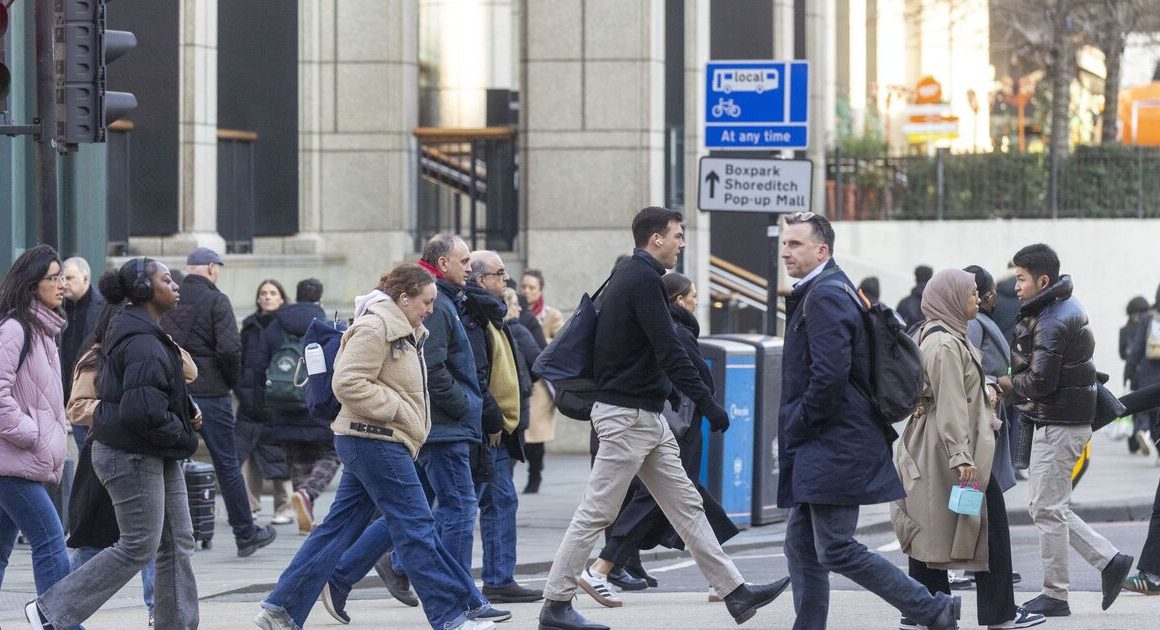In the small South Caucasus nation of Georgia, a titanic battle over its future is taking place.
Georgians went to the polls on Saturday in the most important election since the country’s independence from the Soviet Union in 1991.
A gaggle of opposition coalitions set out to jointly bring an end to 12 years of rule by Georgian Dream (GD), a once pro-Western party that has shifted heavily over the past two years toward favouring ties with Russia over those with the European Union and the United States.
It has been a startling reversal of course for the country, where polls regularly show that upwards of 80 per cent of Georgians support joining the EU. While this remains the publicly stated goal of GD, relations have degraded so badly over the party’s increasing authoritarianism that Brussels officially froze Georgia’s EU candidacy in June, just months after granting it.
The immediate impetus for the move was the implementation of a much-criticized Russian-style law on “foreign agents,” passed by Georgia’s parliament in May despite massive street protests against it. (The law enables government agencies to effectively dismantle any civil society organization at a whim.)
There were few expectations that Saturday’s parliamentary election would occur in a free and fair environment — the pre-election period had already been marred by government pressure and harassment against the opposition. As the voting progressed, widespread instances of vote-buying, ballot box-stuffing and other fraudulent procedures carried out by GD and its allies were recorded.
The International Republican Institute, a U.S.-based organization aimed at improving democracy abroad, noted the ruling party’s massive use of administrative resources, among other concerns. WeVote, a Georgian elections watchdog, reported “more than 900” instances of irregularities from its observers on the day of the vote.
Thousands of people gathered to voice their dissatisfaction with the results of Georgia’s parliamentary election, due to a widespread belief of vote-rigging. Some protesters carried anti-Russian flags, as the governing Georgian Dream party has strengthened ties with Russia.
Election results falsified, opposition says
There was an atmosphere of uncertainty around the election’s immediate turnout itself. At the headquarters of Coalition 4 Change, one of the main opposition blocs, CBC News saw initial jubilation as exit polls — released as voting closed at 8 p.m. local time on Saturday — showed an opposition victory. Another set of exit polls, however, commissioned by GD’s affiliate media, indicated a government victory.
The two diametrically opposed results were decided in favour of the government an hour later, as the Central Election Commission released the final vote counts. The final results gave about 54 per cent to Georgian Dream — an outcome soon contested by the opposition.
While the full scale of alleged electoral fraud is still being investigated, experts say there’s little doubt that the ruling party falsified the results through an array of methods.

“The Georgian Dream government in recent years has undertaken a coup, an unlawful seizure of power, executed methodically and systematically,” said Hans Gutbrod, a professor of public policy at Ilia State University in Tbilisi, Georgia’s capital. “They’ve captured all state institutions, including the courts, and can now do what they want — including taking the country in another direction.”
That other direction would be back into the arms of Russia, Georgia’s northern neighbour and longtime colonial master. Moscow was quick to congratulate Georgian Dream on its victory — “Georgians have won [today], well done!” Margarita Simonyan, editor-in-chief of Russian state broadcaster RT, wrote on her X account shortly after voting ended.
While it might seem absurd that a country that was invaded by Russia just 16 years ago could swing back toward favouring relations with Moscow, Georgian Dream’s total party control over state institutions means that authorities can ignore public sentiment, Gutbrod said.
“The ruling party uses intimidation, distraction and bribery, as well as highly divisive politics, to ensure that it can do what it wants — both in terms of foreign policy and in the massive plunder through corruption,” he said.
Thousands rally outside parliament building
Georgia’s opposition, meanwhile, is not taking the loss lying down — and neither are thousands of Georgians.
On Monday evening, two days after the vote, opposition parties called their first post-election rally, in front of Georgia’s parliament building in Tbilisi. Tens of thousands turned out to support the parties they had voted for in contesting the results of the election.
“They stole your vote and tried to steal your future,” Salome Zourabichvili, Georgia’s president and a fierce opponent of the ruling party, announced to the crowd. “But no one has the right to do that. I can pledge that we will stay with you until the end on this European path.”

Zourabichvili announced that the opposition bloc, of which she is the main co-ordinator, fully rejects the election results and calls for a new election to be held under strict international supervision.
The crowd in attendance included all ages but visibly skewed younger. Georgia’s youth are the most pro-European cohort of the population, as many said themselves.
Student Lana Togonidze, 20, said she hoped the West “will see that the Georgian people are not standing by this government, we hope they will not recognize these elections as legitimate and they will not validate this government.”
Protester Natia Chachava, wrapped in the Georgian flag, said the demonstrators “don’t want Russia, we don’t want to go back to Russia or back to the Soviet Union.”

Rally left more questions than answers
While the opposition rally was sizable, it left more questions than answers. It was unclear how the parties would move toward their stated goal of fresh elections or how they would overcome the obvious Georgian Dream refusal of such a move.
“Unfortunately, I do not have big hope,” Andro Dadiani said, speaking about whether the protests could effect change. But he said that he felt he had to carry out his civic duties and attend the rally.
Among those with particular concerns over GD’s rule are minorities, such as Georgia’s embattled 2SLGBTQ+ community.

“The last two years have been a nightmare for LGBTQ people in Georgia,” said Mariam Kvaratskhelia, an activist and organizer of the annual Tbilisi Pride march.
“We have been physically attacked numerous times, high-ranking government officials have started to use extremely homophobic rhetoric. I, personally, as a lesbian woman have been attacked again and again by government propaganda and harassment.”
Kvaratskhelia said she sees little future for her community under the current government.
“If GD remains in power, it will be very difficult for LGBTQ people to remain in this country,” she said.
The head of a European Parliament delegation monitoring the parliamentary election in Georgia laid out examples of ‘tension, confusion and chaos’ at some voting stations, as well as attempts to intimidate voters and interfere with voting.













